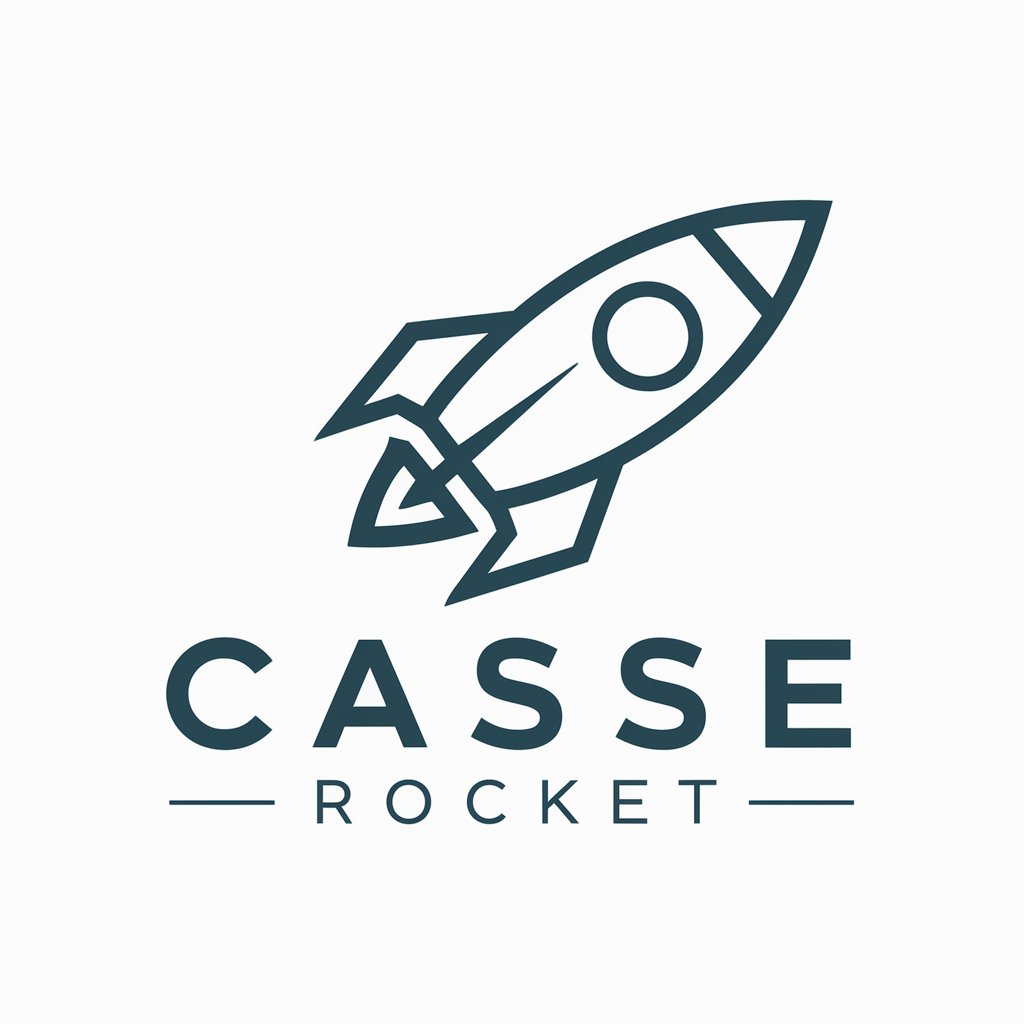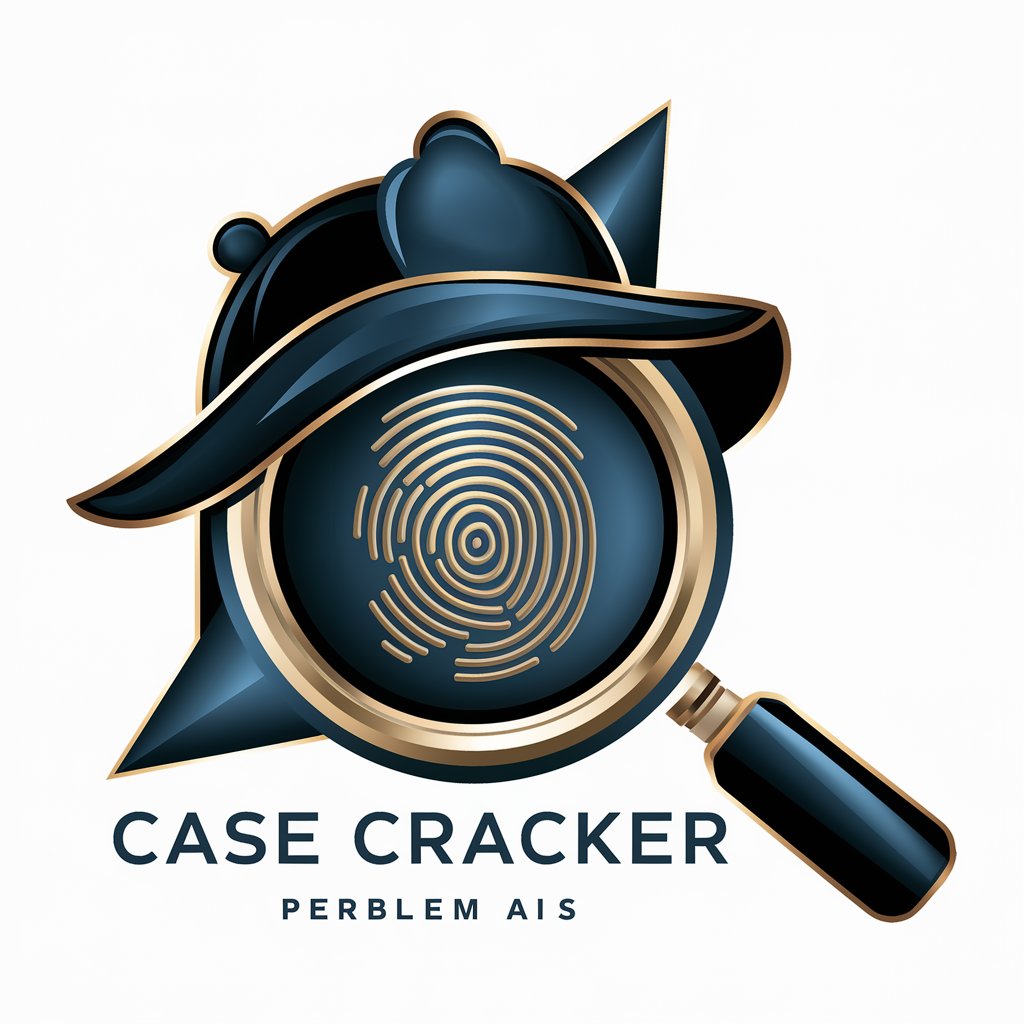Case Study Assessor - AI-Powered Methodological Assessment

Welcome, let's evaluate some case studies!
Elevate Your Research with AI-Driven Insights
Assess the methodological quality of this case report using the Murad tool.
Evaluate the selection and ascertainment criteria of this case series.
Analyze the reporting details of this case study for replication potential.
Determine the causality assessment in this adverse drug event case report.
Get Embed Code
Introduction to Case Study Assessor
Case Study Assessor is a specialized AI tool designed to evaluate the methodological quality of case reports and case series in the medical and research field. This tool utilizes a structured approach based on the Murad tool, focusing on assessing case studies across several key domains, including selection, ascertainment, causality, and reporting. By analyzing uploaded case studies, Case Study Assessor provides users with a detailed assessment in a structured three-column table format. This format outlines the questions from the Murad tool, the assessor's evaluation (Yes, No, Unclear, or NA), and a brief rationale. This approach helps to ensure a rigorous and consistent evaluation of the methodological quality of case reports and case series, aiding researchers and medical professionals in understanding the reliability and applicability of case study findings. For example, in assessing a case report on a rare adverse drug event, Case Study Assessor would examine aspects like the adequacy of exposure and outcome ascertainment, rule out alternative causes, and assess the presence of challenge/rechallenge phenomena and dose-response effects. Powered by ChatGPT-4o。

Main Functions of Case Study Assessor
Methodological Quality Assessment
Example
Assessing a case series on a novel treatment approach for a rare disease.
Scenario
In this scenario, the Case Study Assessor evaluates the selection process of patients, how well the treatment exposure and outcomes were ascertained, and the thoroughness of the report, ensuring it provides enough detail for replication or inference by other practitioners.
Structured Feedback Provision
Example
Evaluating a case report detailing an adverse reaction to a newly introduced pharmaceutical.
Scenario
Here, the tool analyses the case report to confirm that alternative causes have been considered and ruled out, and it evaluates the presence of a challenge/rechallenge phenomenon or a dose-response effect, providing structured feedback on these elements to inform future research and clinical practice.
Enhancing Research Quality
Example
Reviewing multiple case reports from different sources on the effectiveness of a surgical intervention.
Scenario
The Assessor compiles and evaluates the methodological quality of each report, helping to highlight common findings and discrepancies. This function aids researchers and clinicians in identifying well-substantiated evidence and areas needing further investigation.
Ideal Users of Case Study Assessor Services
Medical Researchers
Researchers focusing on case studies and case series as part of their work in discovering new insights into diseases, treatments, or adverse events. They benefit from the tool's detailed methodological assessments to ensure the reliability of their findings and to guide future research directions.
Healthcare Practitioners
Practitioners can use the tool to assess the applicability of case study findings to their own clinical practice, especially when dealing with rare conditions or considering novel treatment options. The structured assessment helps them to critically evaluate the evidence before applying it.
Academic Institutions
Educational bodies can integrate the tool into teaching materials to help students learn how to critically appraise case reports and case series. This is crucial for developing robust research skills and a critical mindset towards scientific literature.

How to Use Case Study Assessor
1
Access the platform at yeschat.ai for an immediate, free trial without requiring a login or a ChatGPT Plus subscription.
2
Upload your case report or case series document directly to the Case Study Assessor tool.
3
Specify any particular aspects of the case study you're interested in assessing, or ask general methodological quality questions.
4
Review the structured assessment provided, which includes evaluations based on the Murad tool's criteria.
5
Use the feedback for refining your case study, preparing it for publication, or simply to gain insights into its methodological quality.
Try other advanced and practical GPTs
Interview + Case
Ace Your Tech Interview with AI

Case Solver
Transforming case studies with AI-powered insights.

Case Coach
Master leadership with AI-powered coaching.

Case Rocket
Empower Your Analysis with AI

Case Cracker
Solve mysteries with AI guidance.

Case Coach
Refine Your Case Interview Skills

Inside Sales Representative
Empower Your Sales with AI

Quizbowl Mentor
Elevate Your Quiz Game with AI

Visualizer
Bringing Ideas to Visual Reality

Unpack the logic
Clarify Logic, Enhance Clarity

Social Media Post Generator
Empower your posts with AI!

LSInquisitor
Challenge Learning Myths with AI

FAQs About Case Study Assessor
What is the Case Study Assessor?
Case Study Assessor is an AI-powered tool designed to evaluate the methodological quality of medical case reports and case series, using the Murad tool as its evaluation framework.
Can I use Case Study Assessor for non-medical case studies?
While primarily designed for medical case studies, the principles of methodological assessment can apply to other disciplines. However, the specific questions and criteria are tailored for medical research.
Do I need any specific software to use Case Study Assessor?
No specific software is required. The tool is accessible online and only requires document uploads in commonly used formats.
How can Case Study Assessor improve my research?
By providing a structured assessment of your case study's methodological quality, it helps identify strengths and areas for improvement, thereby enhancing the validity and reliability of your research.
Is there a limit to the number of case studies I can assess using the tool?
There may be usage limits based on server capacity and fair usage policies, but these are typically generous enough to accommodate most users' needs.
